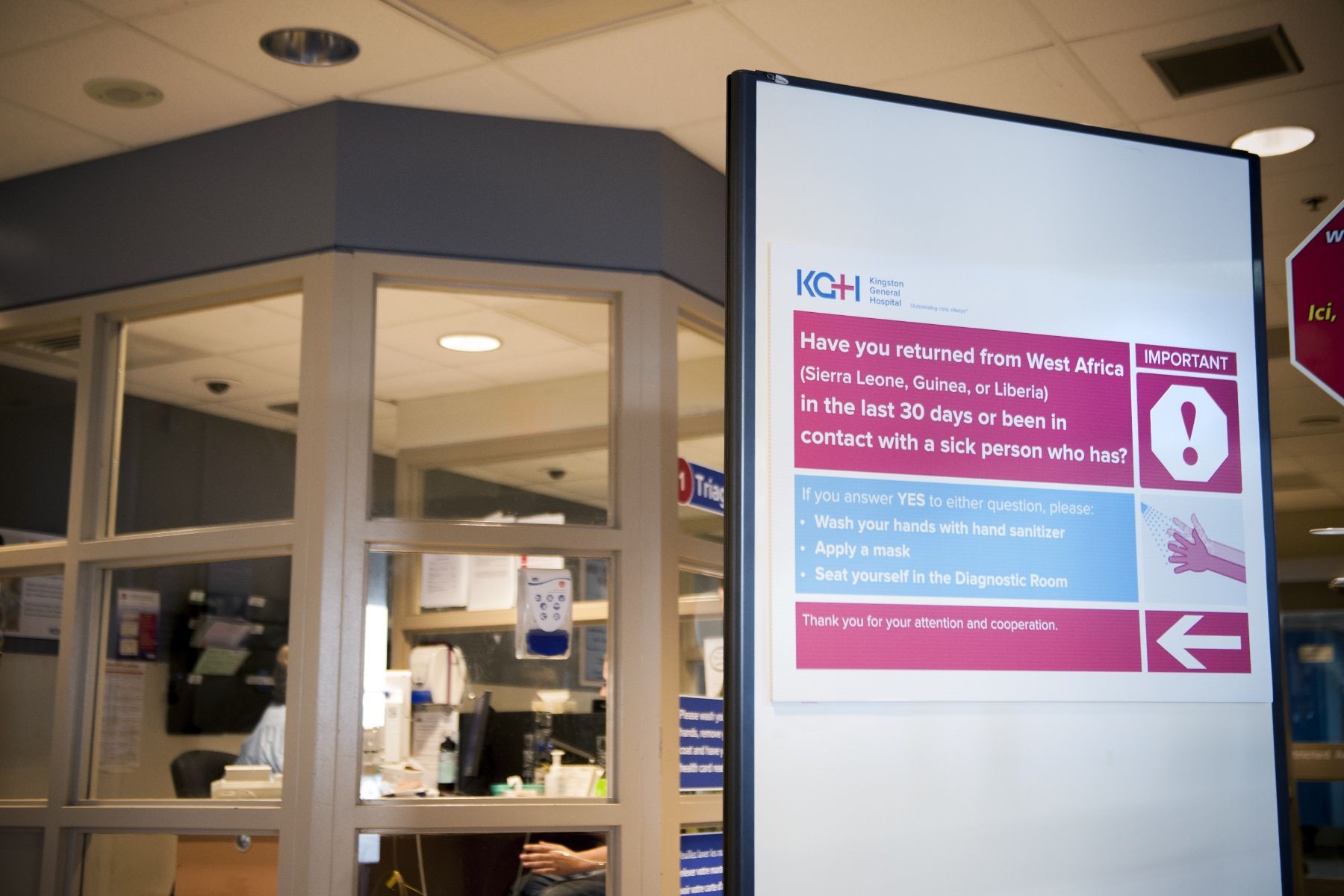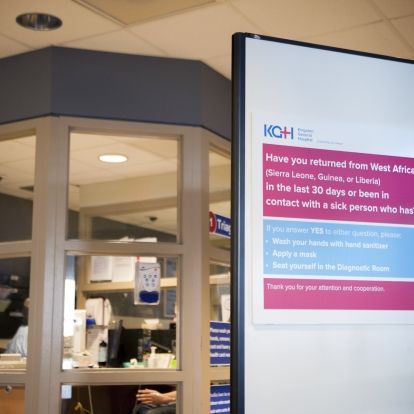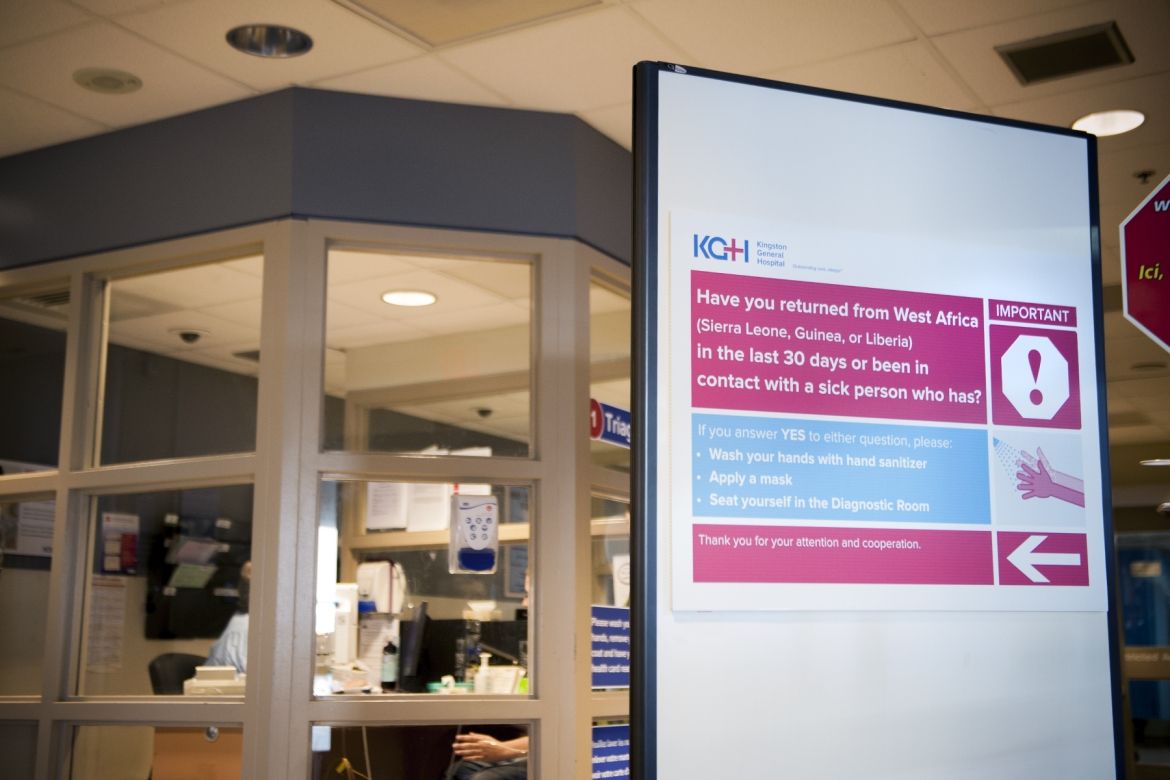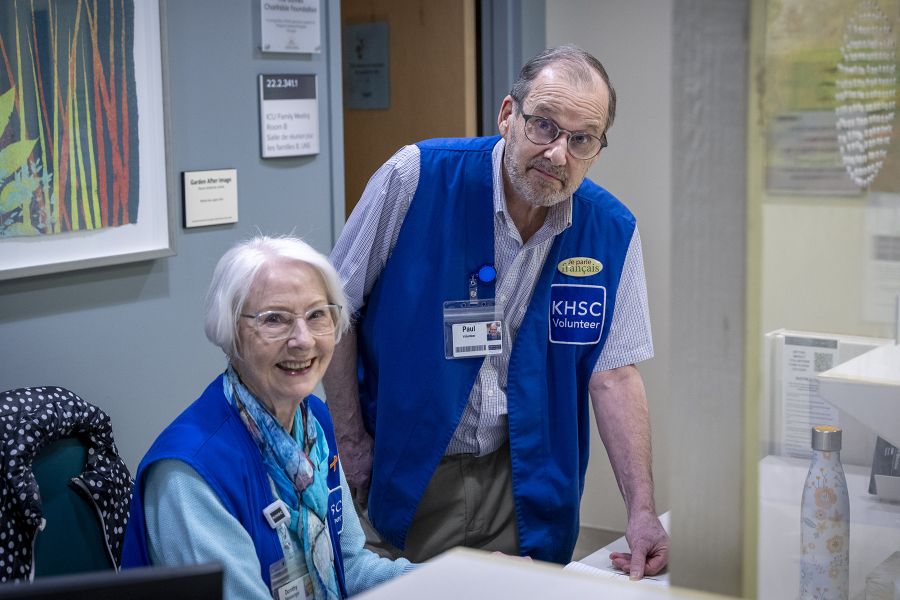
Even though Kingston is half a world away from the epicentre of the Ebola Virus Disease outbreak, preparations are going strong at our hospital to get ready, just in case.
“Even though the likelihood of having a confirmed case of Ebola at KGH is extremely low, we are following all the provincial directives and best practices to make sure we have done everything possible to keep our care teams safe while providing quality patient care,” says Darlene Campbell, Manager of Infection Prevention and Control. “This includes training staff on how to properly use enhanced Personal Protective Equipment (PPE) and making sure we have processes in place to identify and then safely move any potential cases through our hospital.”
Last week, KGH was named one of ten provincial referral hospitals to treat confirmed cases of Ebola and since then, the focus here has been on preparing areas where confirmed cases of Ebola will be managed. At the same time, we are also preparing for the possibility a potential case could arrive in our Emergency Department at any time.
So far, over 100 people have been fully trained in areas where staff will be involved in the care of a patient who is either under investigation or confirmed as having Ebola, including the Emergency Department, Intensive Care Units, Infection Prevention and Control, Environmental Services and Clinical Labs.
The training is focused on showing staff how to properly don and doff all of the enhanced PPE using the buddy system, mirrors, and hair nets and bobby pins to conceal all hair. The enhanced PPE includes goggles, face shields and fluid resistant boot covers, two pairs of gloves and new fluid resistant coveralls.
At the same time as this training is taking place, teams across KGH have developed processes for screening, isolating and then transporting any potential or confirmed cases within the hospital.
Large signs are now up in our Emergency Department that ask all patients to immediately identify themselves if they meet the conditions of suspected Ebola, namely confirmed travel to the West African countries of Liberia, Sierra Leone or Guinea and have a fever. From there, any potential cases will be directed to enter a separate assessment room where they will be assessed in more detail by a triage nurse who will be in enhanced PPE to verify risk factors for Ebola.
“If a patient is then determined to require further investigation for Ebola, processes are put in place to transport the patient to a designated care room within the Emergency Department,” says Brenda Conway, Manager of Protection Services. “All staff involved will be wearing enhanced PPE during the transportation of the patient and the hallways for the transportation route will be cleared by security of all staff and patients.”
While the patient is in the ED designated care room, staff fully trained on using the enhanced PPE and donning and doffing practices will be dedicated to this patient only. In addition, a member of the Infection Prevention and Control team will be present to ensure proper protocol is being followed.
The patient will remain in the ED designated care room until the designated ICU room is ready to receive them at which time they will be moved immediately to the designated negative pressure room in our ICU.
“We will be there every step of the way to help keep safe our healthcare teams and we are leaving nothing to chance,” says Campbell. “As an added benefit to all of these extra preparations, not only are we now prepared to deal with Ebola but we will also be better prepared to deal with any other dangerous infectious disease that may come our way in the future.”
Gallery


New signs in the Emergency Department to direct patients who may be at risk of having Ebola.



